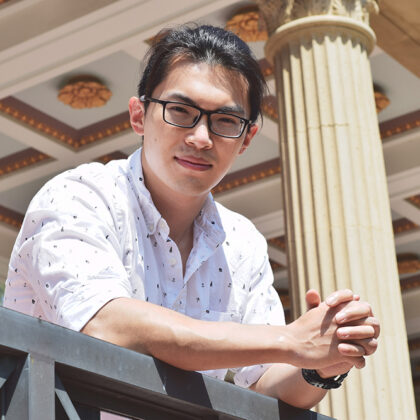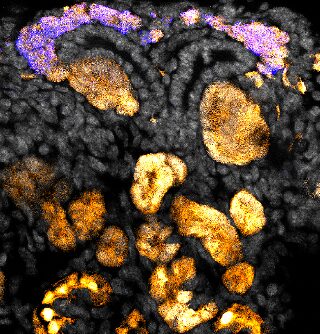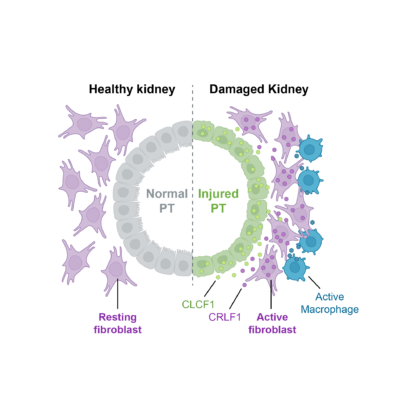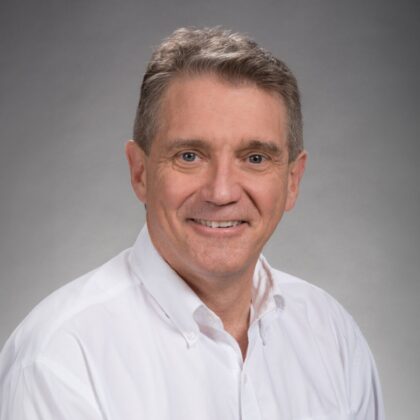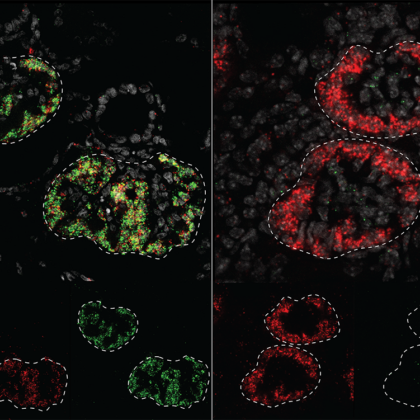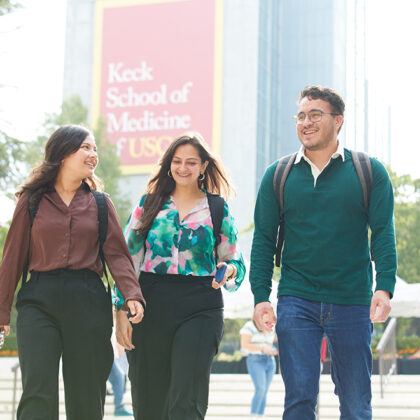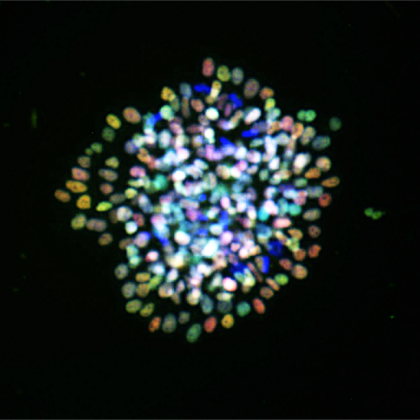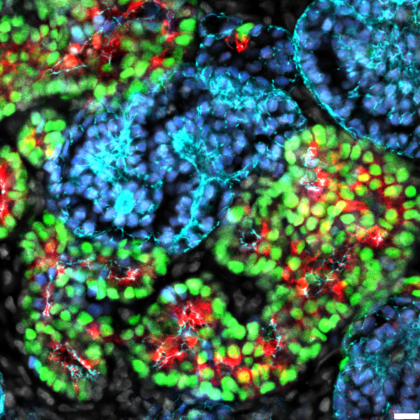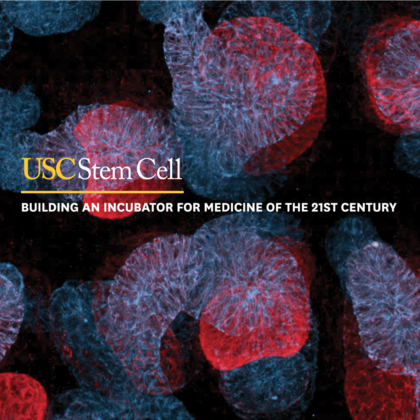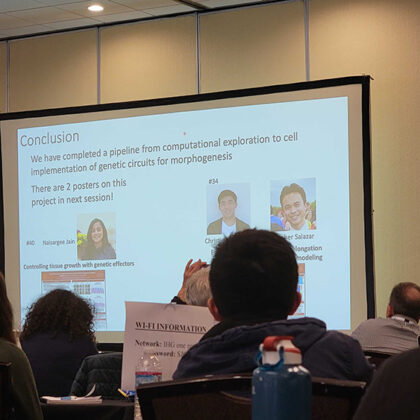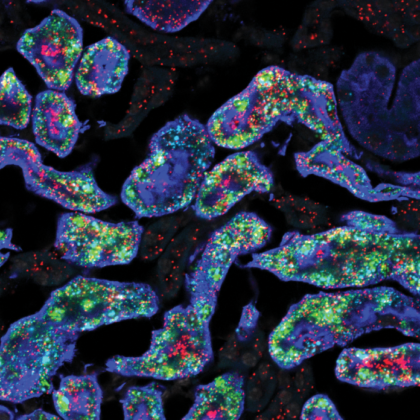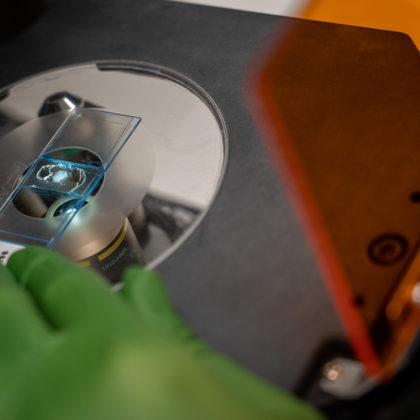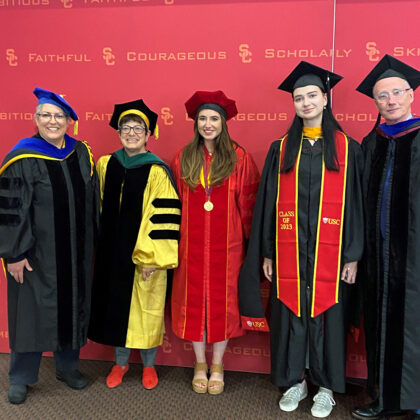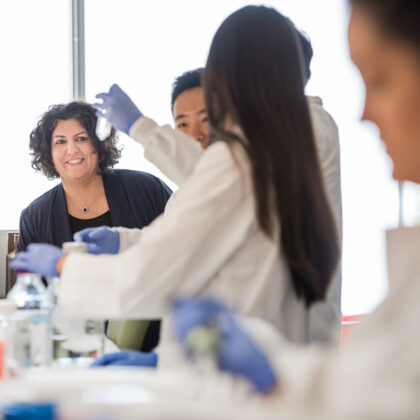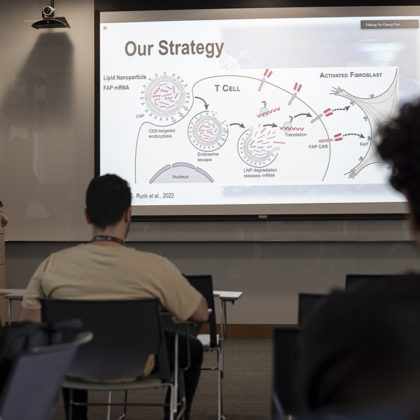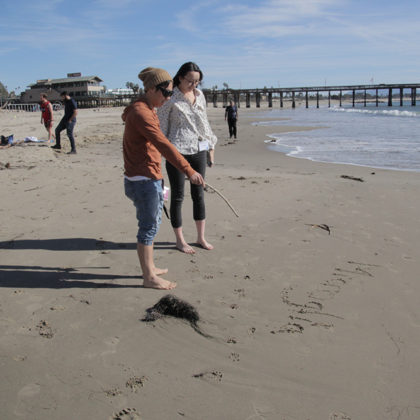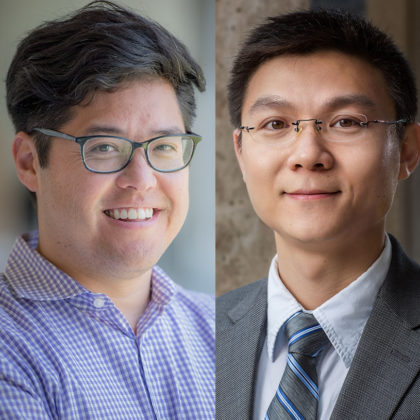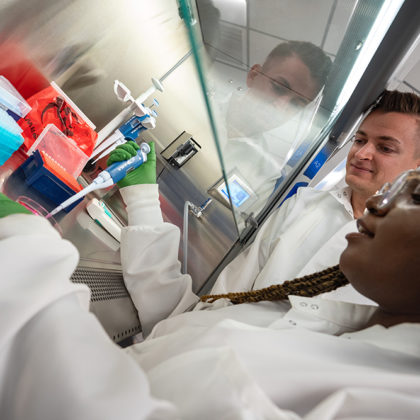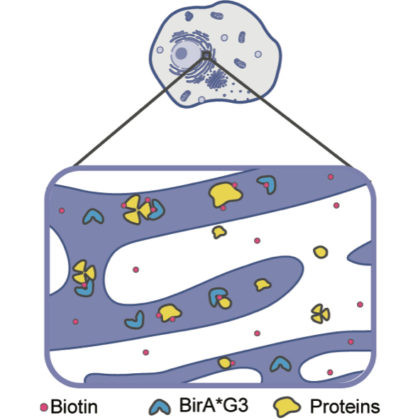Dr. McMahon’s laboratory explores the mechanisms that maintain stem/progenitor cells and regulate their differentiation to mature cell types of different organ systems, particularly the kidney. By combining genetic and genomic approaches with high resolution imaging, his group is aiming to obtain a deeper understanding of stem cell biology and to develop novel therapeutic strategies for regenerative medicine.
Stories
USC Stem Cell-led team makes major advance toward building a synthetic kidney
Scientists combine kidney filtering and urine-concentrating components to create “assembloids,” the most mature and complex kidney structures ever grown in a lab and a tool for developing new therapies. A USC Stem …
Meet USC’s CIRM Scholar Alumni: Alex Qiuyu Guo, Senior Scientist for Discovery Biomarkers at Amgen
Although Alex Qiuyu Guo is now Senior Scientist for Discovery Biomarkers at Amgen, he admits that he didn’t start off being devoted to science. “I was more interested in history,” said Guo, …
Wnt happens in kidney development?
A pair of USC Stem Cell mouse studies detail how progenitor cells self-renew, differentiate, and aggregate into early kidney structures, offering insights for the creation of stem cell-based artificial kidneys. A group …
New study shows cells get involved in unhealthy relationships after acute kidney injury (AKI) in mice
Using cutting-edge technology, researchers at USC and Caltech develop a comprehensive map of cellular, molecular, and structural changes following AKI, revealing cellular interactions that may lead to chronic kidney disease. A study …
USC Stem Cell welcomes new leader, renowned physician-scientist Chuck Murry
Charles (Chuck) Murry, MD, PhD, has been appointed as the next head of USC Stem Cell. In that capacity, he will be the chair of the Department of Stem Cell Biology and …
USC Stem Cell study maps how genes instruct kidneys to develop differently in mice and humans
How similar is kidney development in humans and in the lab mice that form the foundation of basic medical research? In a new study published in Developmental Cell, USC Stem Cell scientists …
How the USC stem cell master’s program changed the lives of 10 alumni
In honor of the 10th anniversary of USC’s stem cell master’s program, we asked 10 alumni to reflect on how the program changed the course of their lives and careers. Launched in …
USC-led study introduces a new and improved way to grow the cells that give rise to the kidney’s filtration system
In a new study published in Cell Stem Cell, USC scientists report significant progress in cultivating nephron progenitor cells (NPCs), the cells destined to form the kidney’s filtration system, the nephrons. NPCs …
$3.95 million CIRM grant establishes USC ASCEND Center to make stem cell-derived organ models accessible to all
To democratize access to lab-grown organ-like structures known as organoids and other advanced stem cell and transcriptomic technologies, USC will launch the CIRM ASCEND Center, dedicated to “Advancing Stem Cell Education and …
Building an Incubator for Medicine of the 21st Century
USC Stem Cell is pleased to introduce our new publication. We hope you’ll enjoy reflecting back on our history, while looking ahead to the transformative times to come. Read now at https://stemcell.keck.usc.edu/wp-content/themes/stemcell/incubator.
Three USC Stem Cell undergraduates expand their horizons, thanks to Neil Segil Travel Scholarships
Few scientists will ever forget the first time they presented their research at a conference. Thanks to the Neil Segil Stem Cell Travel Scholarships, three USC Stem Cell undergraduate researchers recently experienced …
Why are male kidneys more vulnerable to disease than female kidneys? USC Stem Cell-led mouse study points to testosterone.
Female kidneys are known to be more resilient to disease and injury, but males need not despair. A new USC Stem Cell-led study published in Developmental Cell describes not only how sex …
Ten USC Stem Cell PhD students and recent graduates earn NIH fellowships
Ten USC Stem Cell PhD students and recent graduates have been awarded fellowships from the National Institutes of Health (NIH). Known as F31 awards, these prestigious fellowships provide promising PhD students with …
The Keck School of Medicine of USC celebrates the graduates of the master’s, doctoral, and nurse anesthesia programs
“I now declare commencement ceremonies for the Keck School of Medicine of the University of Southern California open!” announced Francesca Mariani, associate professor of stem cell biology and regenerative medicine, and integrative …
Stem cell faculty member Francesca Mariani wins USC’s highest honor for outstanding teaching
When Francesca Mariani learned that she would receive USC’s highest honor for outstanding teaching, a 2023 Associates Award for Excellence in Teaching, it took her by surprise. “Sometimes it feels mysterious as …
Scholarships change lives in USC’s stem cell master’s program: Five students’ stories
For one scholarship recipient in the master’s program in stem cell biology and regenerative medicine, USC is just close enough to his mother’s house to commute and save on rent. For another, …
Scientists feel the sand between their toes at the retreat for USC’s stem cell department
A pair of young scientists picked up a piece of driftwood and thoughtfully traced a series of letters in the wet sand of Ventura Beach. The word “microglia”—referring to the immune cells …
USC Stem Cell scientists Justin Ichida and Zhongwei Li receive NIH Director’s Awards
It’s hard to obtain research funding for safe ideas, and it’s even harder to find funding for risky ones. But thanks to the National Institutes of Health (NIH) Director’s Awards, USC Stem …
USC COMPASS undergraduate program points the way to stem cell careers
To promote inclusive excellence in science, USC will be offering a new program for undergraduates from historically underrepresented backgrounds with an interest in studying stem cell biology and regenerative medicine. Known as …
This mouse can’t keep a secret about the “secretome”
The “secretome” refers to proteins that are secreted by a cell, a tissue or an organism. In a new study published in Open Biology, USC Stem Cell scientist Andy McMahon and his …


